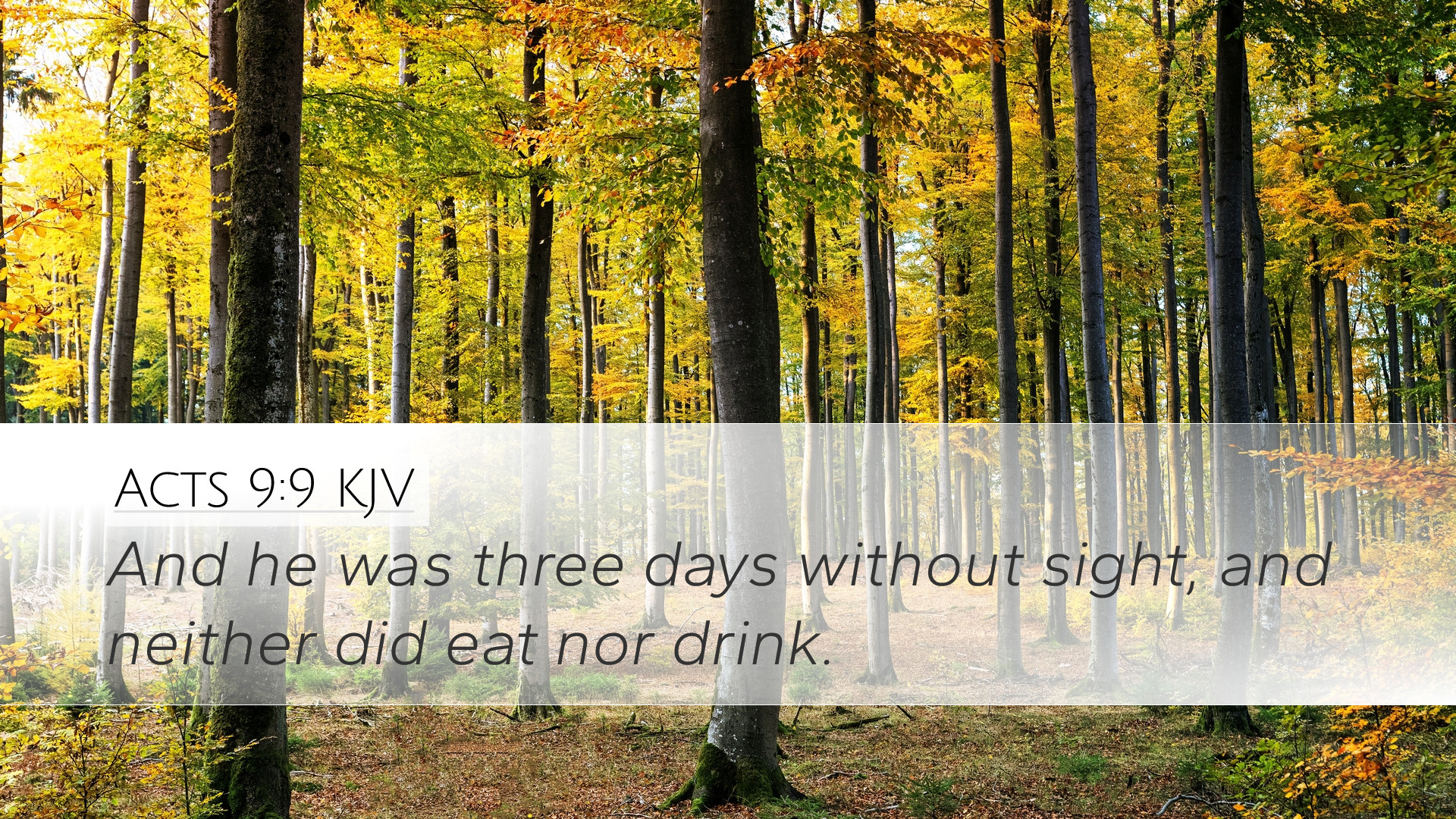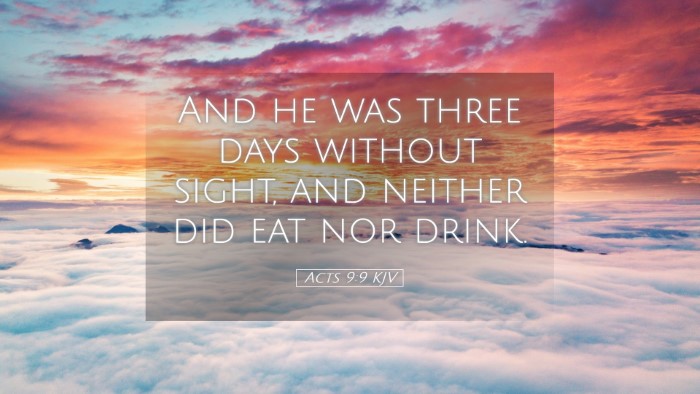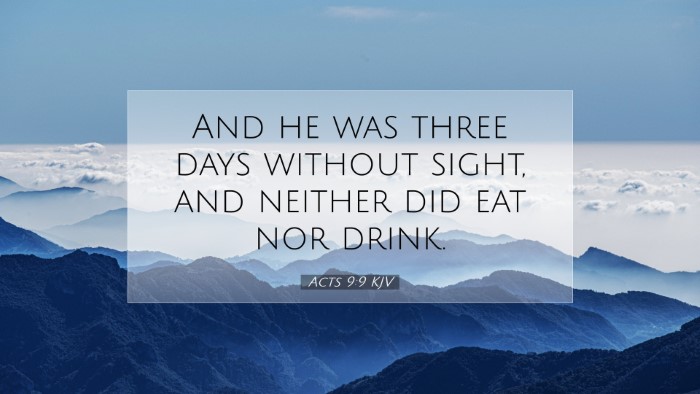Commentary on Acts 9:9
Verse: "And he was three days without sight, and neither did eat nor drink."
Introduction
The account of Saul's conversion on the road to Damascus is a pivotal moment in the New Testament, illustrating profound themes of grace, redemption, and divine calling. Acts 9:9 marks a significant transition in the life of Saul, soon to be known as Paul, the Apostle. This commentary integrates insights from public domain commentaries, aimed at pastors, students, theologians, and Bible scholars.
Contextual Background
Prior to his encounter with Christ, Saul of Tarsus was a zealous persecutor of the early Church, fervently opposing the followers of Jesus. His motivations were grounded in Jewish law and tradition, illustrating the fervor of a man convinced of the righteousness of his actions. The broader narrative of Acts provides the backdrop of the early Christian community's struggles and triumphs amid persecution and expansion.
Detailed Analysis
1. The State of Blindness
Three Days Without Sight
Saul's temporary blindness serves as a multifaceted symbol. Matthew Henry asserts that this physical affliction represents his spiritual blindness to the truth of the Gospel prior to this encounter. The darkness of his sight reflects his spiritual condition—a man fervently devoted to a misguided understanding of God's will.
Albert Barnes adds that the three days of darkness was an appropriate preparation for Saul's transformation. This time of reflection and isolation could have led Saul to confront the deep-seated errors of his previous beliefs and actions—providing a fertile ground for divine revelation and internal change.
2. The Element of Fasting
Neither Did Eat Nor Drink
Saul's abstention from food and drink during these three days symbolizes a period of intense spiritual reflection. Adam Clarke suggests that this could indicate a profound sorrow over his sins and a deep longing for understanding during a significant shift in his life.
This state of fasting may also reflect the seriousness of the moment—the necessity for Saul to seek guidance and enlightenment as he grapples with the reality of Jesus as the Messiah. Fasting is often a precursor to deeper spiritual insight, and Saul's condition positions him for divine revelation.
3. Spiritual Revelation and Transformation
These three days represent a transition from a life of persecution to one of apostolic mission. As Henry notes, the Lord uses this period to prepare Saul not only for his immediate calling but also for the monumental role he would play in the spread of Christianity. This narrative illustrates how God often chooses to work in what appears to be the most unlikely individuals, revealing His grace and mercy.
Theological Implications
The verses surrounding Acts 9:9 reveal that transformation is often accompanied by struggle and a period of introspection. Saul's experience affirms that God can transform the hardest hearts, a critical message for believers who may encounter resistance in their ministry.
1. The Nature of Divine Intervention
Divine Grace: Saul's conversion underscores the depth of God's mercy available to all, regardless of their past. This element of grace is key for pastors and theologians; it invites the Church to reflect inclusively on who can receive and experience this grace, challenging preconceived notions of righteousness.
2. The Call to Spiritual Awakening
Saul’s blindness is a powerful metaphor for spiritual awakening. Just as he was not physically able to see, many in the world today live in spiritual blindness. It calls upon the Church to act as agents of light, helping others find their way to Christ. Here, the significance of community and fellowship is paramount.
Conclusion
Acts 9:9 serves as a dramatic reminder of the transformative power of God encountered through Christ. It illustrates that God can and does work through unexpected means to turn the hearts of individuals toward Himself. Saul's experience serves as a guidepost for believers, encouraging a posture of humility, seeking, and openness to what God can do in our lives and the lives of others.


